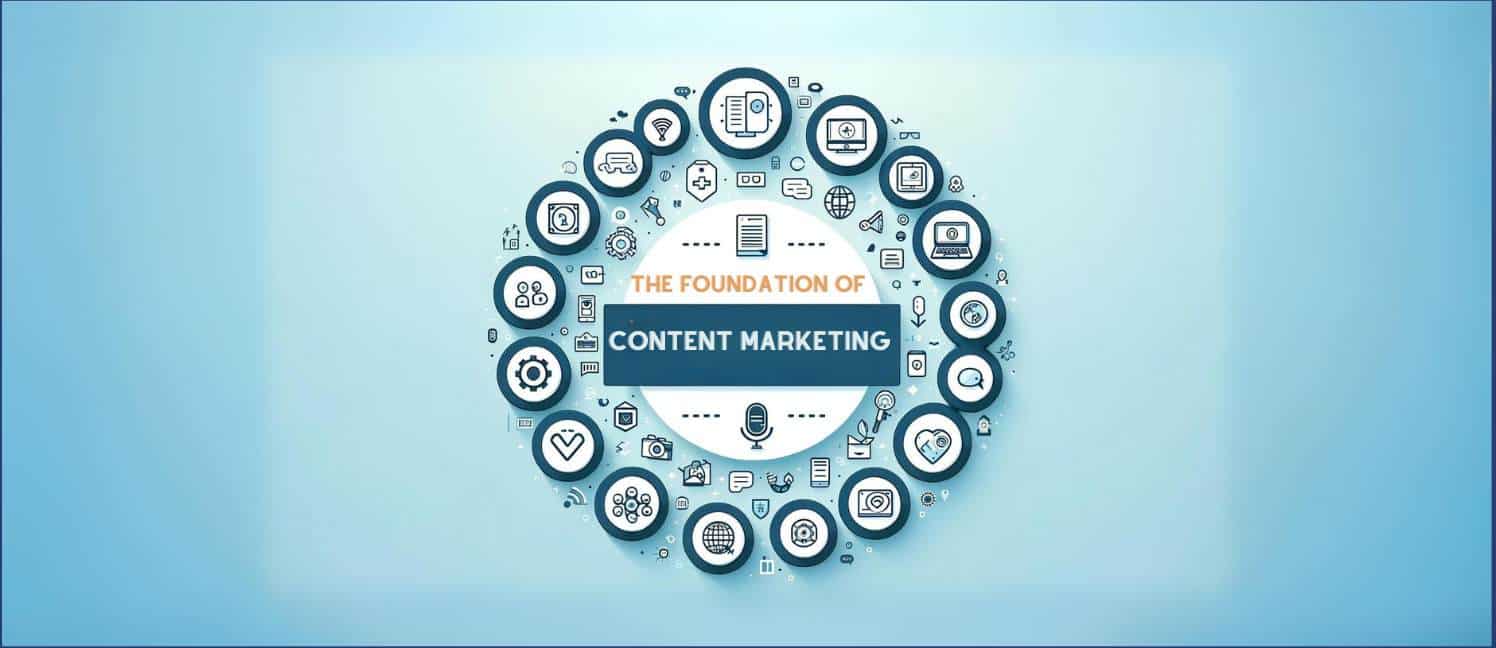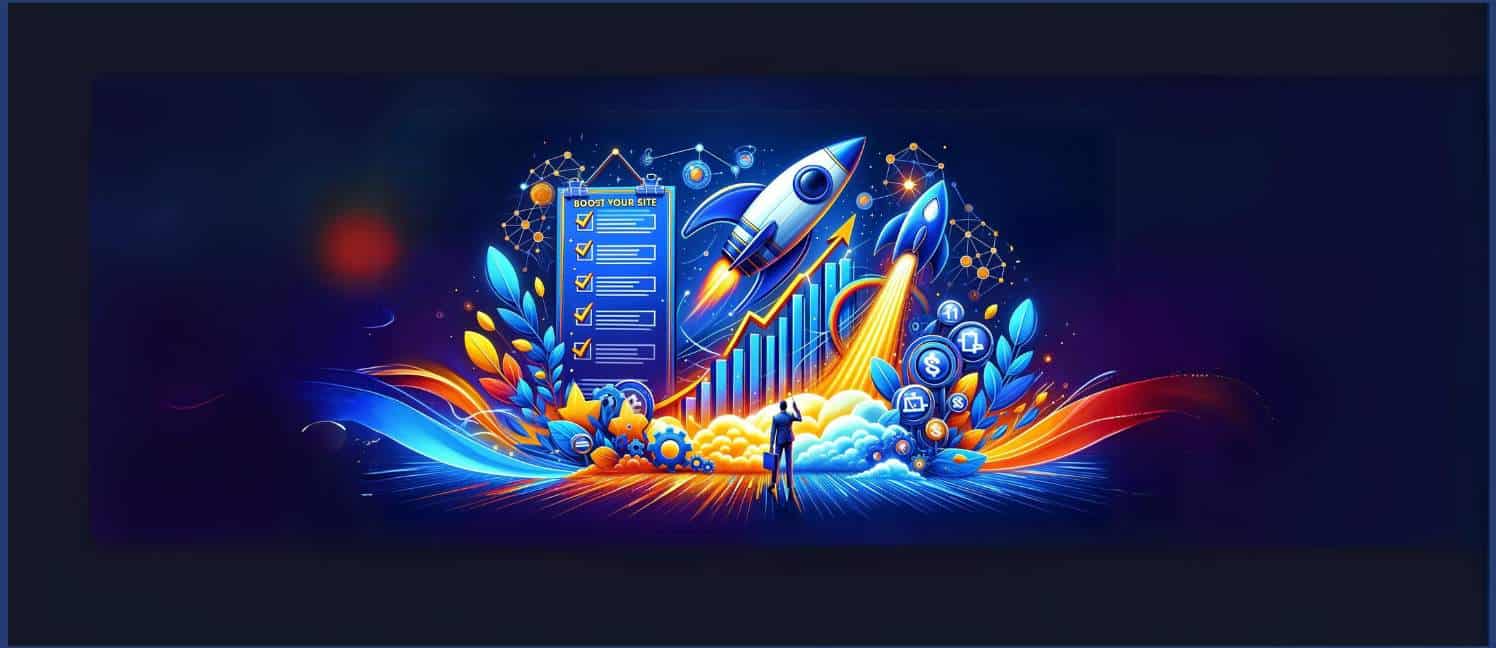Developing an effective B2B content marketing strategy is crucial to long-term business success. The foundation of this strategy is the B2B content marketing funnel, a dynamic framework that helps companies attract, engage, and convert potential customers. In addition to fostering long-lasting client connections and increasing brand authority, this multi-tiered approach aids in nurturing leads.
Each B2B content marketing funnel step has a specific function in the customer journey. During the awareness phase, the emphasis is on producing content that draws in viewers and establishes a company as a leader in the field. Prospects look for comprehensive information and answers during the awareness stage. Turning these leads into devoted clients is the main focus of the decision stage.
Creating content that appeals to the audience at every stage requires understanding its subtleties. Businesses must modify their tactics to suit the particular requirements of their target audience if they want to get the most out of the B2B content marketing funnel. This entails creating content that solves consumers’ problems, provides insightful analysis, and establishes the company as a reliable resource.
This blog series will examine practical methods, resources, and best practices for B2B content marketing funnel optimization. You can walk through the crucial stages to ensure your content resonates, engages, and converts—creating engaging blog articles and instructional videos, for example, propels growth and success in B2B marketing.
What Is a B2B Marketing Funnel?
A business-to-business (B2B) marketing funnel, often called a sales funnel, is a strategic structure that describes the path a prospective customer follows from the moment they learn about your brand to the point at which they become a paying customer. This intricate framework aids B2B businesses in drawing in, interacting with, and directing prospective customers through a sequence of phases, each intended to accomplish a specific goal. Companies can use the B2B marketing funnel as a guide to nurture leads and eventually spur the growth of B2B buyers efficiently. Here are the essential stages of a business-to-business marketing funnel:
B2B Marketing Funnel Stages
The B2B marketing funnel consists of multiple stages in a customer’s lifetime, each serving a distinct function in assisting prospective customers from first awareness to becoming prospective clients. The following are the B2B marketing funnel’s significant phases:
- Awareness Stage:
Goal: Increasing brand recognition among potential customers should be your main focus at this stage, which is at the top of the funnel. At this point, the target audience starts recognizing their problems and actively seeks answers.
Content Strategy: The goal of this stage should be to draw the attention of the target audience to your content. Content should address users’ questions while offering them engaging and informative material. Common content categories include infographics, introductory films, blog posts, and social media ads.
Strategies: To ensure your content reaches a larger audience, use content distribution, social media marketing, and search engine optimization (SEO). Give insightful information without overtly endorsing your client’s goods or services.
- Consideration stage:
Goal: Prospective customers actively weigh their options when they are in the consideration phase. They are searching for comprehensive information and investigating possible fixes for their issues.
Content Strategy: At the intent stage, your content should show your market knowledge and offer in-depth insights. It involves persuading potential customers to view your client’s goods or services as a worthwhile investment. Examples of common content are webinars, eBooks, case studies, whitepapers, and comparative guides.
Strategies: Nurture qualified leads and direct them towards considering your client’s offerings by using email marketing, webinars, and content marketing. Give prospects the required information and trust-building priority.
- Decision stage:
Goal: The decision stage is the critical juncture at which potential buyers choose to buy. At this point, the content you create should be solution-focused, convincing, and targeted at getting leads to become customers.
Content Strategy: Content formats should address particular objections and issues and highlight the benefits of your product or service that facilitate decision-making. Product demos, customer endorsements, free trials, tailored communications, and case studies showcasing practical implementations are typical content that helps customers make a purchase decision.
Strategies: In this phase, promotional emails, one-on-one sales sessions, and focused content are essential. Provide information that enables the prospects to select the business solution with confidence.

Why Do B2B Businesses Need a Marketing Funnel?
Funnels are crucial for your business-to-business (B2B) marketing activities for the following main reasons:
Streamlined Lead Nurturing:
B2B sales cycles can involve several decision-makers and are lengthy and complex. Using a marketing funnel, you can group leads according to where they are in the purchasing process, which makes it simpler to customize your messaging and content to meet their needs. You may nurture leads more successfully this way, assisting them as they move through the funnel and ultimately become customers.
Enhanced Efficiency:
By outlining the phases a lead goes through, a marketing funnel helps you organize your marketing efforts better. Your money is made sure to go where it matters the most, as there is an optimized marketing system. You can spend your time, money, and effort more wisely as leads go down the funnel, lowering the possibility of squandering them on leads that need to be ready to convert.
Measurable Outcomes:
Marketing funnels offer precise measurements and key performance indicators (KPIs) at every stage. Using a data-driven strategy, you can evaluate the success of your marketing campaigns besides determining conversion rates, pinpointing areas for development, and making well-informed decisions to maximize your strategy by keeping a close eye on the funnel’s performance.
Increased Conversion Rates:
Optimizing your marketing funnel significantly increases the conversion rate from leads to potential clients. It allows you to build trust, tackle objections, and provide timely answers precisely when your leads require them by delivering tailored information and assistance at each stage. Increased conversion rates and a better return on investment (ROI) follow.
Personalized Customer Journey:
Using a marketing funnel, you may give your leads a customized experience. Providing interactions and information that resonate with an ideal customer’s needs and interests as they progress through different stages is paramount. This personalized content approach boosts conversion rates and elevates the overall user experience.
Data-Driven Decision-Making:
Marketing funnels generate a wealth of information to aid in informed decision-making. You can learn more about customers’ preferences, behavior, and pain points by examining the data gathered at each step. By refining your content and strategies, you may use this information to increase the efficacy of your marketing initiatives.
Alignment with Sales Teams:
The marketing and sales teams can work together more effectively if you use a marketing funnel. The sales team can obtain high-quality leads ready to convert if you set clear handover points and explicit criteria for when a leader is “sales-ready.” The entire sales process is more efficient when marketing and sales sync to make the purchase stage effective.
Competitive Advantage:
A well-organized marketing funnel might help you stand out from the competition in the fiercely competitive B2B sector. It enables you to interact with potential customers more successfully, provide them with worthwhile options, and assist them in making decisions. This competitive edge can make a difference in drawing in and keeping customers in the retention stage.
A marketing funnel is a valuable tool that can significantly impact the success of your B2B company. It’s more than simply a theoretical framework. A marketing funnel may help you make data-driven decisions, obtain a competitive edge in the market, expedite lead nurturing, boost productivity, and enhance conversion rates. A well-designed marketing funnel is a luxury in today’s B2B environment and a must for companies looking to expand and succeed over the long haul.
How to Create a Cohesive B2B Marketing and Sales Funnel for Your Business?

To effectively guide potential clients through their path from early awareness to becoming paying customers, a well-designed B2B marketing and sales funnel is essential. It is a step-by-step guide to assist you in creating a solid and successful B2B sales and marketing funnel for your client company:
Determine Who Your Target Market Is:
Describe the Profile of A Potential Client: Make a thorough buyer persona of your ideal client first. Recognize their preferences, behaviors, pain spots, and demographics. This data will serve as the basis for developing tactics and relevant content that appeal to the target customer.
Sort The Audience: Some leads are in different places with their purchase. Sort your leads into awareness, contemplation, and decision stages based on where they are in the funnel, and then adjust your messaging and content accordingly.
Provide Useful Content:
Write Material for Every Phase:
- Create types of content that fit into every funnel stage.
- During the awareness phase, concentrate on educational blog content, engaging social media posts, and introduction films.
- Provide granular information through webinars, eBooks, white papers, and case studies while considering the proposal.
- Provide convincing information through high-quality content during decision-making, such as client testimonials and product demo videos.
Content Quality Is Important: Ensure your content is articulate, addresses the challenges your target audience encounters, and offers valuable insights. Valuable content builds credibility and identifies your client company as an industry leader. Follow a content calendar, which can make things easier for you.
Put Marketing Automation into Practice:
Select the Correct Tools: Invest in automation solutions, including lead scoring software, email marketing platforms, and customer relationship management (CRM) systems. With these tools, you can effectively manage and nurture leads and monitor their advancement in the funnel.
Lead Scoring: Use lead scoring to evaluate the preparedness and quality of leads. This enables you to give high-value leads with higher conversion rates priority.
Quantify and Examine:
Monitor content marketing KPIs or key performance indicators:
- Utilize analytics tools to track the effectiveness of your funnel.
- At every level of the funnel, keep an eye on audience engagement, conversion, bounce rates, and other pertinent KPIs.
- Analyze this data often to determine which content marketing strategies work and what needs improvement.
A/B Testing: To improve your content and tactics, run A/B tests. Test different elements, such as email subject lines, landing page designs, and calls to action buttons, to enhance results.
Fine-tune and optimize:
Constant Enhancement: Improve your funnel using data-driven strategies based on your findings. To improve conversion rates and the entire user experience, make necessary adjustments to content, messaging, and touchpoints.
Get Rid of Bottlenecks: Find any places in your funnel where leads drop off and remove them. Streamline the procedure or provide more pertinent content to address these problems.
Coordinate Sales and Marketing:
Cooperation:
- Promote close coordination between your marketing team and sales teams.
- Ensure the B2B sales funnel has distinct transition points from marketing to sales.
- Ensure the objectives and plans of both teams align with one another.
Sales Enablement: Give your sales team the resources and information they require to complete deals successfully. Give them information, statistics, and insights from the marketing funnel so they can customize their strategy for every lead.
Track Customer Input:
Compile Input: Gather customer reviews from those who have successfully navigated the funnel. Acknowledge the issues they raised, the things that worked, and the places where the experience could have been better.
Utilize Feedback for Iteration: Make constant improvements to your funnel content by implementing this feedback. Using a customer-centric strategy ensures that your funnel may change to meet the needs of your evolving clientele.
By following these guidelines and maintaining a continuous improvement mindset, you can craft a cohesive B2B marketing and sales funnel that effectively guides potential customers through the buying journey. In addition to improving lead nurturing, a well-designed funnel will increase conversion rates and support overall business expansion. Building and managing a successful funnel for powerful B2B content marketing requires constant adjustment to the target audience’s changing demands and preferences.
Managing Your B2B Marketing Funnel to Achieve Everlasting Success
The journey through the marketing funnel is a dynamic and crucial process that promotes business growth in business-to-business (B2B) marketing. The B2B marketing funnel is a valuable tool that facilitates the primary goals of lead nurturing, boosts productivity, and supports data-driven decision-making. By comprehending the phases and using a unified approach, you may unleash the possibilities of your business-to-business marketing endeavors, propelling prosperity and cultivating enduring client connections in the constantly changing commercial environment.
Effective B2B marketers rely heavily on content to guide potential consumers through the entire funnel and develop them into devoted supporters. Here at ContentGO, we recognize the value of professionalism and the impact that well-written content can have. Our platform is committed to assisting companies and publishers in producing, distributing, and optimizing top-notch content that appeals to their intended audience.
You can explore the possibilities of ContentGO if you’re prepared to advance your content marketing. With more than 100 agencies as partners, ContentGo has worked with over 4,000 brands. We facilitate an efficient content marketing process by providing top-notch, audience-relevant content that is plagiarism-free, automatically published, and much more. Visit our publisher registration page to join our content creators and publishers community. Together, we can use strategic marketing and premium content to completely change your B2B marketing services.












